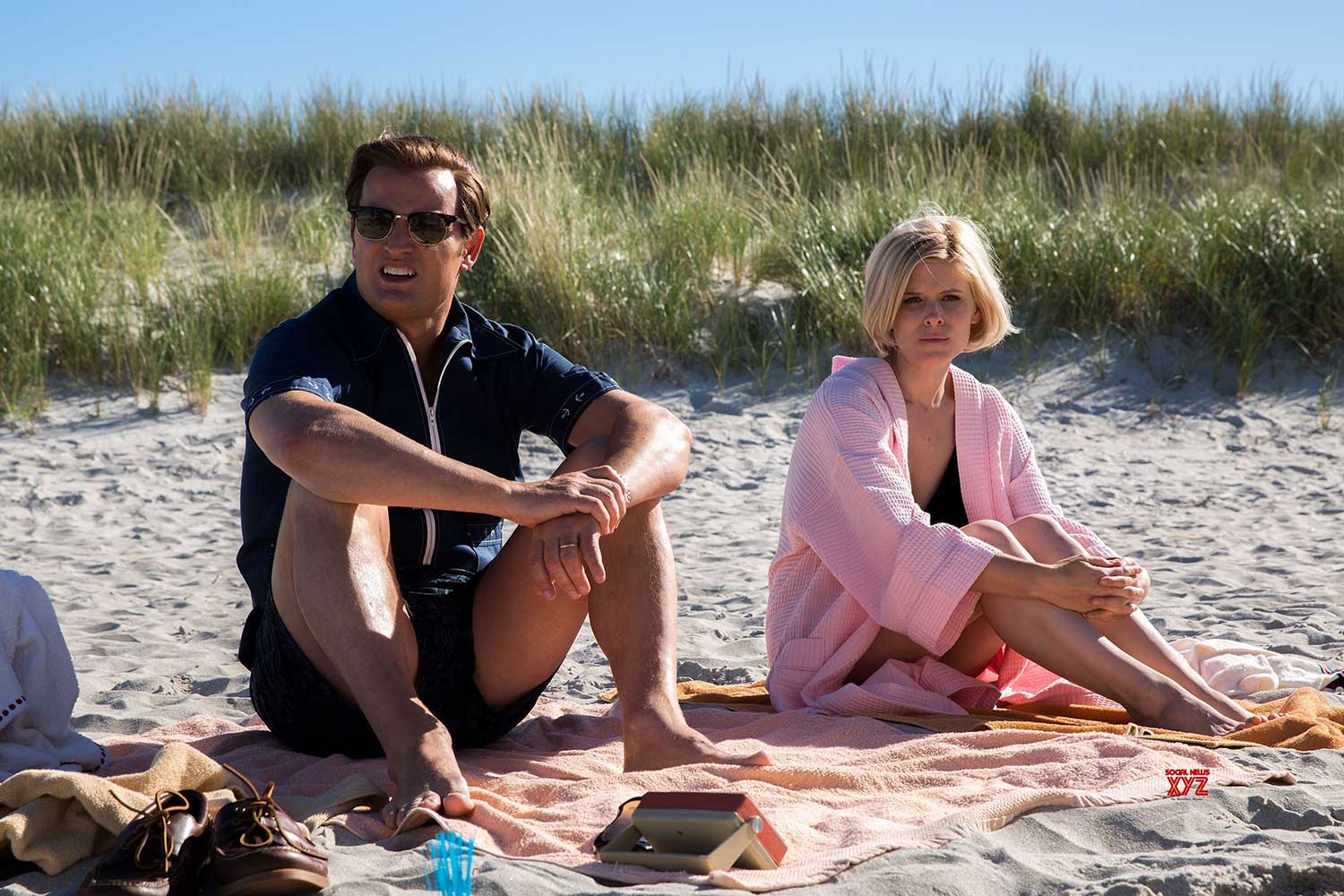I do know that I am not the target demographic for Chappaquiddick. When it comes to the Kennedy family scandals, I don’t think anyone under 35 was in the theater besides myself interested in what they were about to see. Maybe the movie was pandering to it’s perceived audience, but regardless, Chappaquiddick’s storytelling misses the point of the horrible scandal to prop up a person that probably doesn’t deserve the respect the movie is giving him.
Chappaquiddick Island is on the East side of Martha’s Vineyard, home of the Kennedy summer estate. On July 18, the youngest Kennedy brother, Ted (Jason Clarke) was having a party with his cousin Joe (Ed Helms) and friend Paul (Jim Gaffigan) and 6 unmarried women, including Rachel Schiff (Olivia Thirlby) and her friend Mary Jo Kopechne (Kate Mara), a previous staffer for Teddy’s brother Robert. After a night of drunken fun, Teddy and Mary Jo get into Ted’s car, and drunkenly drive around the island. Things take a horrible turn when Ted’s car misses a bridge and careens into the nearby creek, becoming submerged. Ted escapes, but fails to rescue Mary Jo, who dies despite rescue efforts from Paul and Joe. Ted freaks out, and swims across the channel to his hotel where he goes to sleep that night. However, Ted fails to report what he did to the police resulting in Mary Jo’s body being found and multiple reporters descending onto the island. Ted then has to decide if he comes forward, or if he does what his dad (Bruce Dern) wants, and use Robert McNamara (Clancy Brown) to lie and deceive his way out to clear his name.
The touches director John Curran puts onto the story undermine what I think is his intended goal for Chappaquiddick. I think the movie is trying to use the details known to be “true” for the incident to deliver a non judgmental viewpoint toward Ted Kennedy. There a many inconsistencies with this approach, however. First of all, many of the details of the story come directly from the Kennedy family and the host of lawyers and the courts that were extremely, um, friendly to powerful people, so already the approached skews toward sympathy for the man despite aiming for neutrality. As a result, Curran directs Jason Clarke to be a blank slate, basically reacting to whatever situation happens next as if he wasn’t prepared for that to happen. When you remove agency from your lead character, you better make the rest of your leads interesting; however, the screenplay sidelines cousin Joe, probably the 2nd most interesting character, for most of the 2nd half of Chappaquiddick and gives us essentially a rotation of cameos with no character development pulling the strings, meaning the story plays more like a documentary instead of a narrative drama. Again, this would all be fine if the movie played into how naive and weak Ted Kennedy is, and the story ALMOST gets there. If I had a guess, I’m thinking test audiences might not have liked a skewering of the popular family, so Curran elected to put rousing, sympathetic music and scenes apologizing to Mary Jo’s parents to paint Ted in a much more sympathetic light than he deserves. The icing on the movie’s poor understanding is the final scene – Ted’s live broadcast to the people – where cousin Joe gets the best line of the movie and it’s swept away by a rousingly scored speech that is empty and hollow and supposed to be the movie’s emotional high. Neutrality is not objectivity, and Chappaquiddick, much like Ted Kennedy, still needs to learn that lesson before being taken seriously.
Inadvertently, Chappaquiddick does have one important lesson to teach everyone. That lesson is how the powerful and rich stay powerful and rich. About an hour in, Robert McNamara and the spin machine come in and manipulate all the people around them to return Ted Kennedy to his status quo. They plan all their big reveals and events around the moon landing which is going on, so none of the information becomes first page news. The reveals appear truthful but leave out some negligent behavior to make Kennedy seem more sympathetic than he actually is. And brilliantly but most terribly of all, they get their friends in the justice system to get a sympathetic judge to hear Kennedy’s case and let him off essentially with a slap on the wrist. Chappaquiddick might be a crappy character study, but it does provide a blueprint for any person who wonders why a corrupt person continues to stay in power even when they do terrible things.
The tragic tale of Mary Jo Kopechne is a real missed opportunity and poorly executed story of what happened on Chappaquiddick Island. Don’t believe me? How many times did I mention her name in this review? The movie really treats her like a prop to be disposed of in favor of the more “interesting” Kennedy, perhaps icing on the disgusting cake the spin machine is serving up today.

